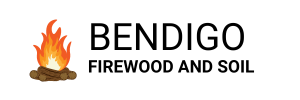YELLOW BOX
Eucalyptus melliodora, commonly known as Yellow Box.
Eucalyptus melliodora, commonly known as Yellow Box, is a significant and iconic Australian hardwood species, renowned for its durable timber, ecological value, and the high-quality honey produced from its nectar. This species is indigenous to the southeastern regions of Australia, thriving in a variety of environments from the tablelands of New South Wales and the Australian Capital Territory to areas in Victoria and Queensland. Yellow Box is highly esteemed for its adaptability, resilience, and the array of benefits it offers to both the environment and industries.
Physical Characteristics
Eucalyptus melliodora is a medium to large-sized tree, which can reach heights of up to 30 metres (about 98 feet), though it often grows smaller in less ideal conditions.
It possesses a broad, spreading crown filled with dense foliage, making it an attractive landscape feature. One of the most distinguishing characteristics of Yellow Box is its bark, which is fibrous, flaky, and has a distinct yellow to greyish color, contributing to its common name.
The leaves of the Yellow Box are narrow, lance-shaped, and emit a pleasant, eucalypt-like scent when crushed. Its flowers are creamy-white and bloom in clusters, attracting a variety of pollinators, especially bees. The fruit is a small, woody capsule containing numerous seeds, typical of eucalypt species.
Ecological Role
The Yellow Box plays a crucial role in its native ecosystems.
Its flowers provide a vital source of nectar and pollen for bees and other pollinators, contributing significantly to the biodiversity of its environment.
The dense canopy offers shelter and nesting sites for various bird species, while the tree itself is a habitat for a range of insects and mammals, playing a key role in the ecological food web.
Uses and Benefits
Timber: Yellow Box wood is highly valued for its strength, durability, and resistance to decay, making it ideal for a wide range of uses, including construction, flooring, furniture making, and fencing. Its timber is known for its beautiful grain and colour, which can range from a light golden hue to deeper reddish-browns.
Honey Production: Perhaps one of the most notable uses of Eucalyptus melliodora is in the production of honey. Yellow Box honey is highly prized for its light colour, exceptional sweetness, and complex flavour profile. It is considered one of the finest honeys in the world, often sought after by connoisseurs and gourmet food enthusiasts.
Environmental and Ornamental Use: Yellow Box trees are often planted for land rehabilitation and erosion control due to their deep root systems that help stabilise the soil. They are also popular in landscaping and urban greening projects for their aesthetic appeal and ability to provide shade and habitat for wildlife.
Conservation and Challenges
While Eucalyptus melliodora is not currently listed as an endangered species, it faces threats from land clearing for agriculture, urban development, and climate change.
These pressures can lead to habitat fragmentation and loss, impacting the species' distribution and health.
Conservation efforts are essential to protect the remaining Yellow Box populations, ensuring the preservation of their ecological roles and continued availability for their valued uses.
Eucalyptus melliodora, or Yellow Box, is a remarkable species that embodies the resilience and diversity of Australian flora.
Its ecological importance, coupled with its economic and ornamental value, underscores the need for sustainable management and conservation efforts.
By protecting and promoting the health of Yellow Box trees, we can preserve a part of Australia's natural heritage and ensure that future generations can continue to enjoy the benefits and beauty of this exceptional species.
Eucalyptus Melliodora: The Superior Choice for Firewood
Eucalyptus melliodora, commonly known as Yellow Box, is widely regarded as one of the best firewood choices due to its exceptional burning properties.
Its popularity among homeowners, campers, and those seeking sustainable heating solutions is well-founded, given its high heat output, long burn time, and environmental benefits.
Let's delve into the specific qualities that make Yellow Box an excellent choice for firewood.
High Calorific Value
One of the primary reasons Yellow Box is favoured for firewood is its high calorific value. The wood's density and hardness contribute to its ability to store a significant amount of energy, which is released as heat when the wood is burned. This high energy content means that Yellow Box firewood can produce more heat per unit of volume compared to softer or less dense wood types. As a result, it provides a more efficient heating solution, requiring less wood to warm a space effectively.
Long and Consistent Burning
Yellow Box wood is renowned for its slow-burning characteristics. This slow combustion rate is a direct consequence of the wood's density, allowing it to burn for extended periods. A fire fueled by Yellow Box wood will not only last longer but will also maintain a consistent temperature, offering sustained warmth. This feature is particularly beneficial during cold nights or in applications where maintaining a fire with minimal intervention is desired, such as in wood stoves or open fireplaces.
Low Smoke and Clean Burning
Another significant advantage of Yellow Box as firewood is its relatively low smoke production and clean-burning properties. Woods that emit a lot of smoke when burned can be problematic, especially in indoor settings, as they contribute to air pollution and can pose health risks. However, Yellow Box burns more cleanly, minimising the emission of particulate matter and other pollutants. This clean combustion makes it a more environmentally friendly option and improves the air quality within homes.
Availability and Sustainability
Eucalyptus melliodora is widely distributed across southeastern Australia, making it readily available in regions where it is native. The sustainability of using Yellow Box for firewood is enhanced by responsible forestry practices, including selective harvesting and managed regrowth. By adhering to sustainable management practices, the supply of Yellow Box firewood can be maintained without compromising the health of natural ecosystems.
Environmental Benefits
Using Yellow Box wood for firewood also offers environmental advantages. As a renewable resource, wood is a carbon-neutral fuel; the carbon dioxide released during combustion is roughly equivalent to the amount absorbed by the tree during its growth. By choosing Yellow Box firewood from sustainably managed forests, users can reduce their reliance on fossil fuels, thereby contributing to the reduction of greenhouse gas emissions.
Eucalyptus melliodora, or Yellow Box, stands out as an exemplary choice for firewood due to its high calorific value, long and consistent burn time, low smoke production, and environmental sustainability.
These attributes make it not only a practical and efficient source of heat but also an environmentally conscious choice.
As demand for renewable heating options continues to grow, Yellow Box firewood represents a fusion of performance and environmental stewardship, ensuring that its popularity will likely remain strong for years to come.

